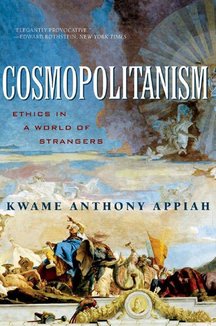Recommended Books

These Truths: A History of the United States
Author:
Jill Lepore
ISBN 13:
978-0393357424
“Nothing short of a masterpiece.” ―NPR Books A New York Times Bestseller and a Washington Post Notable Book of the Year In the most ambitious one-volume American history in decades, award-winning historian Jill Lepore offers a magisterial account of the origins and rise of a divided nation. Widely hailed for its “sweeping, sobering account of the American past” ( New York Times Book Review ), Jill Lepore’s one-volume history of America places truth itself―a devotion to facts, proof, and evidence―at the center of the nation’s history. The American experiment rests on three ideas―“these truths,” Jefferson called them―political equality, natural rights, and the sovereignty of the people. But has the nation, and democracy itself, delivered on that promise? These Truths tells this uniquely American story, beginning in 1492, asking whether the course of events over more than five centuries has proven the nation’s truths, or belied them. To answer that question, Lepore wrestles with the state of American politics, the legacy of slavery, the persistence of inequality, and the nature of technological change. “A nation born in contradiction… will fight, forever, over the meaning of its history,” Lepore writes, but engaging in that struggle by studying the past is part of the work of citizenship. With These Truths , Lepore has produced a book that will shape our view of American history for decades to come. 70 illustrations

Hope Against Hope: Introduction by Maria Stepanova (Everyman's Library Contemporary Classics Series)
Authors:
Nadezhda Mandelstam
,
Max Hayward
,
Maria Stepanova
ISBN 13:
978-1101908365
Nadezhda Mandelstam’s memoir of life with her husband, the poet Osip Mandelstam, is a vital eyewitness account of Stalin’s Soviet Union and one of the most moving testaments to the value of literature and imaginative freedom ever written. In 1933, Osip Mandelstam (1891–1938) wrote a satiric poem about Joseph Stalin, and the result of his defiance was arrest, interrogation, and exile, followed by re-arrest and death in a transit camp of the Siberian gulag in 1938. Osip’s wife, Nadezhda (1899–1980), loyally accompanied him into exile in the Urals and later worked courageously to rescue the manuscripts of his poems and to discover the truth about his death. Hope Against Hope is her harrowing account of their last years together and a window into Stalin’s persecution of Russia’s literary intelligentsia in the 1930s and beyond. But it is also a profoundly inspiring love story that relates their determination to keep both love and art alive in the most desperate circumstances. After years of circulating privately in the Soviet Union, Hope Against Hope was smuggled out and published in the West in 1970 and has since achieved the status of a classic, not only for its essential testimony to a dramatic period of history but also for the enduring brilliance of Mandelstam’s writing. Everyman's Library pursues the highest production standards, printing on acid-free paper, with full-cloth cases with two-color foil stamping, decorative endpapers, silk ribbon markers, European-style half-round spines, and a full-color illustrated jacket. Contemporary Classics include an introduction, a select bibliography, and a chronology of the author's life and times.

Cosmopolitanism: Ethics in a World of Strangers (Issues of Our Time)
Author:
Kwame Anthony Appiah
ISBN 13:
978-0393329339
“A brilliant and humane philosophy for our confused age.”―Samantha Power, author of A Problem from Hell Drawing on a broad range of disciplines, including history, literature, and philosophy―as well as the author's own experience of life on three continents― Cosmopolitanism is a moral manifesto for a planet we share with more than six billion strangers.